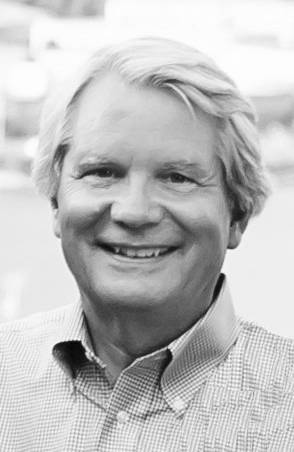Gubernatorial hopeful Mark Begich has strived to paint his candidacy and his priorities as the solution to revive our state economy. But many of his positions or those of his backers do not support this claim.
Some of the same people and organizations that endorsed Bill Walker’s ”independent” bid for governor four years ago are now begrudgingly supporting Begich. While this may serve to temper Begich’s positions on some issues during the campaign, it’s likely Begich will swerve further left if elected.
Should a Begich governorship come to pass, we will surely see a proliferation of policies designed to strangle real economic growth and diversification.
Yes, Begich has promised to continue work on the gas pipeline, but this is still at the dream stage and years away from feasibility. His campaign website talks about investments in infrastructure but, when pressed, Begich talks about deferred maintenance — not projects that would create new jobs and expand the economy in Alaska.
When asked about the single shovel-ready project that would add infrastructure and diversify the economy while lowering steep transportation costs and putting Alaskans to work — Juneau Access — Begich says he is against it.
While Begich says he wants to stabilize our state budget, he has doubled down on his commitment to Medicaid expansion — arguably one of Alaska’s most damaging fiscal mistakes. As a deciding vote on Obamacare in the U.S. Senate, there is no question Begich believes that Medicaid expansion was a good thing for Alaska despite the spike in medical premiums and the havoc it has caused to our state budget.
Let’s not forget, in 2015 Alaskans were promised the state would save $100 million over six years by expanding Medicaid coverage to all able-bodied working-age adults. Instead, the opposite happened. In 2018, after enrollment was 150 percent over projections, the Legislature was presented with a $100 million supplemental appropriation to fund additional enrollees. Without some controls put on expenditures, these costs will continue to explode.
Instead of looking for ways to restore the PFD, Begich advocates diverting significant revenues from the Permanent Fund into state education spending. Yet, according to a recent report by King Economics Group, the current level of spending per student is 17 percent higher than FY 2006 after adjusting for inflation and student population. Despite that, Alaska’s student achievement levels rank our state among the lowest in the nation.
Begich has taken reductions in government expenditures off the table, instead preferring to talk generally about “reforming the delivery of government services.” He would force Alaskans to accept a smaller Permanent Fund Dividend while reducing their personal income with an economy-killing income tax or sales tax.
Most concerning, however, is an issue on which he differed sharply from Walker. His full-throated support for Ballot Measure 1 distinguishes him from any other gubernatorial candidate. Indeed, it’s a position that puts him at odds with almost all 13 Alaska Native corporations, labor unions, most of the Alaskan business community, many former Alaska attorneys general and fish and game officials, Alaska’s entire Congressional delegation and the editorial board of Alaska’s largest newspaper.
Ballot Measure 1 is an environmental initiative that would cause significant negative impacts on community and economic development. Its financial backers (mostly Outside environmental groups) claim the measure would strengthen state law protecting wild salmon and fish and wildlife habitat in Alaska.
Yet, no statewide or regional fishing organization like United Fisherman of Alaska or Southeast Alaska Seiners Association supports this measure. Ditto with any major seafood processing company within Alaska. If this measure truly protected fish, wouldn’t you think industry organizations representing fishermen and companies that depend on fish production would support it?
Begich’s support for Ballot Measure 1 is telling. He calculated that he needed nearly 100 percent of the environmental vote to have any chance at winning this election. No doubt he will get their vote. What kind of influence will environmental activists wield in a Begich administration in return?
Undecided voters leaning toward Begich face a dilemma when they go to the polls on Tuesday.
Is the Begich on the ballot really the one who will revive Alaska’s economy, or is he the one who will kill it?
• Win Gruening retired as the senior vice president in charge of business banking for Key Bank in 2012. He was born and raised in Juneau and graduated from the U.S. Air Force Academy in 1970. He is active in community affairs as a 30-plus year member of Juneau Downtown Rotary Club and has been involved in various local and statewide organizations. He contributes a regular column to the Juneau Empire. My Turns and Letters to the Editor represent the view of the author, not the view of the Juneau Empire.

